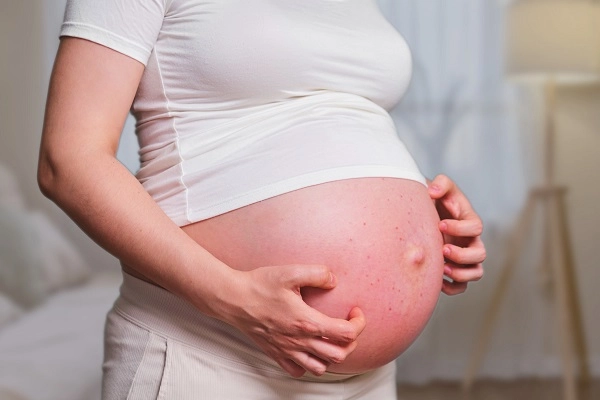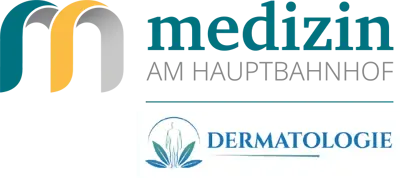 Photo: © Андрей Журавлев - stock.adobe.com
Photo: © Андрей Журавлев - stock.adobe.com
Although the skin becomes increasingly radiant during pregnancy due to increased blood circulation in the skin ("pregnancy glow"), the hormonal change can also lead to excessive sebum production and consequently skin impurities up to acne and often also pigment shifts, which is why many pregnant women also during this time don't want to do without their skin care. Since a large number of skin care products, cosmetics and cosmeceuticals are already on the market, many pregnant women are unsure about the safety of their use during pregnancy and breastfeeding. Fortunately, most moisturizers, facial cleansers and night creams are safe to use during pregnancy, however there are active ingredients that are passed across the placenta to the baby and are suspected of being harmful.
The local application of retinoids/vitamin A derivatives (e.g. retinol and many more), which are found in numerous skin care creams for the treatment of wrinkles or pigment disorders and also in medicinal creams for the treatment of acne, are prohibited during pregnancy due to an increased risk of teratogenic effects avoid. If medical treatment of acne is necessary, topical therapies (creams or gels with antibiotic or anti-inflammatory ingredients) are recommended during pregnancy and should be treated by a dermatologist for moderate or severe forms of acne.
Lightening substances used to treat pigment disorders (melasma) such as hydroquinone should be avoided during pregnancy due to their carcinogenic potential. Some alternative substances with an equally mild bleaching effect - including azelaic acid - are considered safe during pregnancy. In most cases, the pigment shifts recede in the first few months after delivery - if this is not the case, treatment should be started after weaning. The most effective measures to prevent pigment shifts and skin cancer (melanoma) are protection from sunlight by wearing a hat, staying in the shade as much as possible and using sunscreen daily. Studies have not found any solid evidence that either synthetic or mineral sunscreens are harmful to the unborn child. Mineral sun protection does not penetrate into the deeper layers of the skin and is particularly suitable for sensitive skin (e.g. rosacea) and is therefore a safe alternative during pregnancy and breastfeeding. It is important that the sunscreen offers broad spectrum protection against UVA and UVB rays of the sun and has a factor of at least SPF 30 (better SPF 50).
Anti-aging products like vitamin C and peptides, as well as moisturizing ingredients like hyaluronic acid and ceramides are considered safe during pregnancy. Alpha Hydroxy Acids (AHA; e.g. Glycolic Acid) exfoliate the skin's surface and are included in many products used to treat acne, sun damage or hyperpigmentation. Since absorption into the skin is only very superficial, use during pregnancy and breastfeeding can be classified as safe. On the other hand, the beta-hydroxy acid (BHA) salicylic acid, which is used to treat skin blemishes, requires caution and may only be used in low concentrations and quantities. For this reason, only controlled medical peelings should be carried out during pregnancy in the case of more severe forms of acne.
Furthermore, parabens (preservatives) should be avoided in skin care products, as studies have shown that use during pregnancy can have consequences for the later weight development of the child. Essential oils can sometimes have labor-inducing effects and also trigger allergies and should therefore also be avoided during pregnancy.
However, if you are unsure, you should generally avoid the respective product during pregnancy or arrange a medical consultation for a detailed explanation, in which you will be advised in detail.
Dr. Spiegelfeld headed a specialized outpatient clinic for women’s and pediatric dermatology, with a particular focus on skin during pregnancy.


